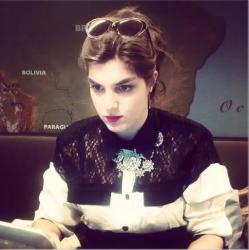Much buzz surrounded the Reykjavík International Film Festival premiere of ‘Sparrows’ (‘Þrestir’), director Rúnar Rúnarsson’s second feature film. It begins as a classic coming-of-age story, focusing on 16-year-old Ari (Atli Óskar Fjalarsson) as he struggles with being uprooted from his life in Reykjavík with his mother, transplanted to a small town in the Wesfjords to live with his absent father Gunnar (Ingvar E. Sigurðsson).
As Ari attempts to adjust to the different way of life in a small town, he also must deal with more personal issues brought to light by his move—mainly feeling abandoned, first by his father as a young boy when his parents split, and now by his mother, who is moving abroad with her Danish husband. Ari’s father cares for him and tries to make up for lost time, but struggles in part because of the differences in their personalities (Ari is a singer in a boy’s choir and Gunnar is a gruff fisherman), and because he is an alcoholic.
If this tense relationship wasn’t enough, Ari is isolated by some of his former childhood friends, most notably Lára (Rakel Björk Björnsdóttir). Their initial reunion is one of excitement, spoiled by Lára’s asshole boyfriend, who is a posturing douchebag. When Ari tries to hang out with her at a party, her boyfriend threatens to beat the shit out of him, and that seems to be the end of one of his two real friendships there. Add to that his crush on Lára, and you’ve got the recipe for a very lonely 16-year-old.
Without divulging the entire plot, it’s safe to say this coming-of-age tale is not lighthearted, although there are some darkly comedic moments done in a typically Icelandic way. There are a couple of no-nonsense depictions of the horrible and inevitable loss of innocence that is often skipped over in coming-of-age narratives. These scenes seem to be crucial to what ‘Sparrows’ is about, and make for a more critical viewing experience. The film also doesn’t follow the script of “sheltered city boy leaves city and meets wacky and backwards country folk who teach him valuable lessons in a zany way,” which is an easy trope to fall into in Icelandic film.
Ari’s interactions with the few other characters are substantive; sometimes funny, sometimes heartbreaking, sometimes just mundane, but always serving to further illuminate each character. Atli does a great job of making Ari a sympathetic character, which is a no mean feat for a 16-year-old in the height of his “No one understands me!!!!!” angst. Instead of presenting what could have easily been an irritating stereotype, Atli portrays Ari in a sensitive manner that invites the viewer to empathize, given that just about everyone has felt at some point that no one can truly feel their pain.
Sophia Olsson’s cinematography is gorgeous, and captures the feeling of being in a small Westfjords town quite well. With mountains framing every shot, and thus every character interaction, you can feel the closeness and mild claustrophobia of a place with a population of only a couple hundred. These shots don’t linger for too long on the obvious beauty of the landscape, illustrating the story rather than digressing into scenery porn. The constant daylight during the many party scenes and Ari-lying-in-bed scenes illuminates them with a clarity that underscores the disturbing and emotionally fraught moments.
Gunnar Óskarsson’s sound design is spare and intentional, a nice compliment to the clean visuals. The actual soundtrack is minimal, with Ari’s singing being the only real musical backing to a few scenes, notably the opening where he performs with his choir, and midway through the film where he sings in an empty water tower for his coworker at a fish processing plant. Many contemporary films seem to rely too heavily on soundtracks to pull the emotional weight of a scene, whereas ‘Sparrows’ allows the acting, directing, and script to stand on their own and convey exactly what director Rúnar intended.
Though several Icelandic films before this have featured a person from Reykjavík coming to the countryside to escape or discover or whatever (‘Paris of the North’, ‘Either Way’), ‘Sparrows’ doesn’t feel formulaic. The story itself is regionally specific and dark in tone, without feeling forced, allowing it to break away from the path Rúnar could have gone down. The ending isn’t neatly wrapped up either, leaving the viewer space to reflect on the slice of Ari’s life we’ve been presented with in the context of much larger things than a 99-minute film.
4.5 of 5 stars
—
See Also:
 Icelandic Film Wins At San Sebastián Film Festival
Icelandic Film Wins At San Sebastián Film Festival
Rúnar Rúnarsson’s film Sparrows (Þrestir) has won the Golden Shell award for Best Film at the San Sebastián International Film Festival.
Buy subscriptions, t-shirts and more from our shop right here!
















